
Kód: 04558665
Brains, Buddhas, and Believing
Autor Dan Arnold
Premodern Buddhists are sometimes characterized as veritable "mind scientists" whose insights anticipate modern research on the brain and mind. Aiming to complicate this story, Dan Arnold confronts a significant obstacle to popula ... celý popis
- Jazyk:
 Angličtina
Angličtina - Väzba: Brožovaná
- Počet strán: 328
Nakladateľ: Columbia University Press, 2014
- Viac informácií o knihe

47.97 €

Skladom u dodávateľa v malom množstve
Odosielame za 10 - 15 dní
Potrebujete viac kusov?Ak máte záujem o viac kusov, preverte, prosím, najprv dostupnosť titulu na našej zákazníckej podpore.
Pridať medzi želanie
Mohlo by sa vám tiež páčiť
-

Devils' Line, Volume 1
11.93 € -18 % -

Lenin Reloaded
144.77 € -

Homophobic Bullying
85.46 € -

Proverbs, Volume 2
14.30 € -10 % -

Humans and the Environment
164.12 € -

Date Which Will Live
37.68 € -

Cyberbullying in the Global Playground - Research from International Perspectives
183.07 € -

Teutonic Knight vs Lithuanian Warrior
17.80 € -23 % -

Marvel's Loki the Official Collector Special Book
21.10 € -2 % -

Vintage Tea Party Book
24.91 € -23 % -

Der Rhein. Oberes Mittelrheintal von Bingen bis Koblenz (hochwertiger Premium Wandkalender 2024 DIN A2 quer), Kunstdruck in Hochglanz
87.51 € -

Novum Testamentum Graece, 28. revidierte Auflage, with Dictionary (Greek-Englisch)
46.43 € -

Die besten Rezepte für die Tajine
8.23 € -5 % -

Rainbow Fish: Bilingual Edition (English-Arabic)
11.83 € -5 %
Darujte túto knihu ešte dnes
- Objednajte knihu a vyberte Zaslať ako darček.
- Obratom obdržíte darovací poukaz na knihu, ktorý môžete ihneď odovzdať obdarovanému.
- Knihu zašleme na adresu obdarovaného, o nič sa nestaráte.
Viac informácií o knihe Brains, Buddhas, and Believing
Nákupom získate 118 bodov
 Anotácia knihy
Anotácia knihy
Premodern Buddhists are sometimes characterized as veritable "mind scientists" whose insights anticipate modern research on the brain and mind. Aiming to complicate this story, Dan Arnold confronts a significant obstacle to popular attempts at harmonizing classical Buddhist and modern scientific thought: since most Indian Buddhists held that the mental continuum is uninterrupted by death (its continuity is what Buddhists mean by "rebirth"), they would have no truck with the idea that everything about the mental can be explained in terms of brain events. Nevertheless, a predominant stream of Indian Buddhist thought, associated with the seventh-century thinker Dharmakirti, turns out to be vulnerable to arguments modern philosophers have leveled against physicalism. By characterizing the philosophical problems commonly faced by Dharmakirti and contemporary philosophers such as Jerry Fodor and Daniel Dennett, Arnold seeks to advance an understanding of both first-millennium Indian arguments and contemporary debates on the philosophy of mind. The issues center on what modern philosophers have called intentionality -- the fact that the mind can be about (or represent or mean) other things. Tracing an account of intentionality through Kant, Wilfrid Sellars, and John McDowell, Arnold argues that intentionality cannot, in principle, be explained in causal terms. Elaborating some of Dharmakirti's central commitments (chiefly his apoha theory of meaning and his account of self-awareness), Arnold shows that despite his concern to refute physicalism, Dharmakirti's causal explanations of the mental mean that modern arguments from intentionality cut as much against his project as they do against physicalist philosophies of mind. This is evident in the arguments of some of Dharmakirti's contemporaneous Indian critics (proponents of the orthodox Brahmanical Mimasa school as well as fellow Buddhists from the Madhyamaka school of thought), whose critiques exemplify the same logic as modern arguments from intentionality. Elaborating these various strands of thought, Arnold shows that seemingly arcane arguments among first-millennium Indian thinkers can illuminate matters still very much at the heart of contemporary philosophy.
 Parametre knihy
Parametre knihy
Zaradenie knihy Knihy po anglicky Humanities Religion & beliefs Buddhism
47.97 €
- Celý názov: Brains, Buddhas, and Believing
- Podnázov: The Problem of Intentionality in Classical Buddhist and Cognitive-Scientific Philosophy of Mind
- Autor: Dan Arnold
- Jazyk:
 Angličtina
Angličtina - Väzba: Brožovaná
- Počet strán: 328
- EAN: 9780231145473
- ISBN: 0231145470
- ID: 04558665
- Nakladateľ: Columbia University Press
- Hmotnosť: 458 g
- Rozmery: 229 × 162 × 17 mm
- Dátum vydania: 06. May 2014
Obľúbené z iného súdka
-

Radical Acceptance
22.33 € -

In the Buddha's Words
21 € -20 % -

Zen Teaching of Huang Po
14.10 € -19 % -

Pema Choedroen's Compassion Cards
17.49 € -5 % -
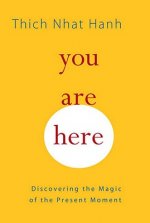
You Are Here
14.30 € -13 % -

ZEN Training
19.35 € -21 % -

Don't Worry, be Grumpy
15.85 € -14 % -

Sayings of Layman P'ang
23.88 € -

Mindfulness of Breathing
19.97 € -23 % -

Introduction To Zen Buddhism
14.51 € -23 % -

Writings from the Zen Masters
9.05 € -23 % -

When Things Fall Apart
18.22 € -1 % -

Mindfulness in Plain English
12.35 € -23 % -
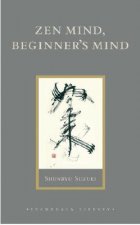
Zen Mind, Beginner's Mind
16.57 € -23 % -

Buddhism: A Very Short Introduction
10.18 € -22 % -

Primordial Experience
26.97 € -

The Book of Joy
15.23 € -22 % -

When Things Fall Apart
11.21 € -23 % -

No Mud, No Lotus
15.23 € -8 % -

Little Book Of Buddhism
7.30 € -24 % -
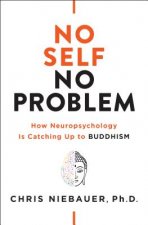
No Self, No Problem
17.80 € -8 % -

Zen Teaching of Homeless Kodo
15.44 € -21 % -

Feeding Your Demons
16.67 € -23 % -

Lotus Sutra
12.35 € -23 % -

Way of the Bodhisattva
15.54 € -16 % -
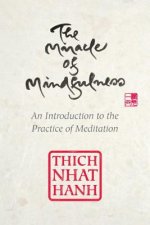
The Miracle of Mindfulness, Gift Edition : An Introduction to the Practice of Meditation
19.86 € -8 % -

Buddhahood Without Meditation
20.28 € -5 % -

Anger
14.82 € -24 % -

Wisdom Wide and Deep
34.38 € -5 % -

The Dhammapada
3.59 € -24 % -

The Way of Zen
14.30 € -23 % -

Wisdom of Insecurity
14.51 € -15 % -
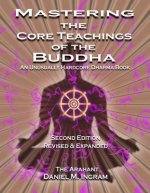
Mastering the Core Teachings of the Buddha
49.72 € -19 % -

Karmamudra
37.06 € -

The Places That Scare You: A Guide to Fearlessness in Difficult Times
17.08 € -7 % -
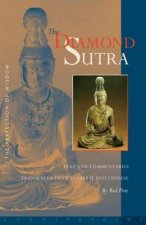
Diamond Sutra
18.73 € -13 % -

Hundred Thousand Songs of Milarepa
37.47 € -19 % -
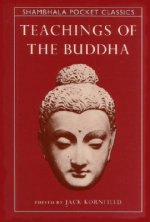
Teachings of the Buddha
10.90 € -5 % -

Tibetan Book of the Dead
15.13 € -18 % -

Secret Map of the Body
32.43 € -

How to Cook Your Life
17.39 € -19 % -
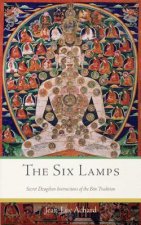
Six Lamps
15.44 € -21 % -

Manual of Insight
48.59 € -20 % -

Heart of Compassion
23.06 € -6 % -

Niguma, Lady of Illusion
34.18 € -17 % -

Supreme Source
30.68 € -16 % -
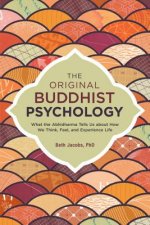
Original Buddhist Psychology
18.42 € -5 % -

Shambhala: The Sacred Path of the Warrior
17.60 € -18 % -
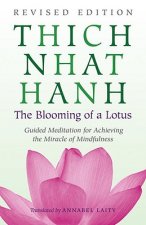
Blooming of a Lotus
14.10 € -19 %
Osobný odber Bratislava a 2642 dalších
Copyright ©2008-24 najlacnejsie-knihy.sk Všetky práva vyhradenéSúkromieCookies


 21 miliónov titulov
21 miliónov titulov Vrátenie do mesiaca
Vrátenie do mesiaca 02/210 210 99 (8-15.30h)
02/210 210 99 (8-15.30h)